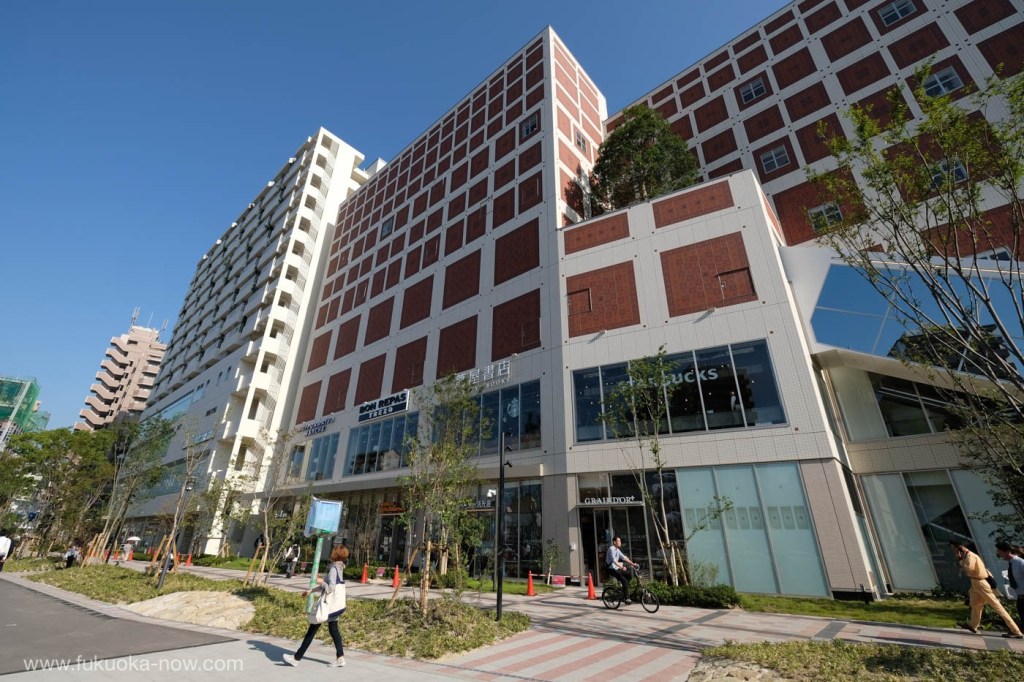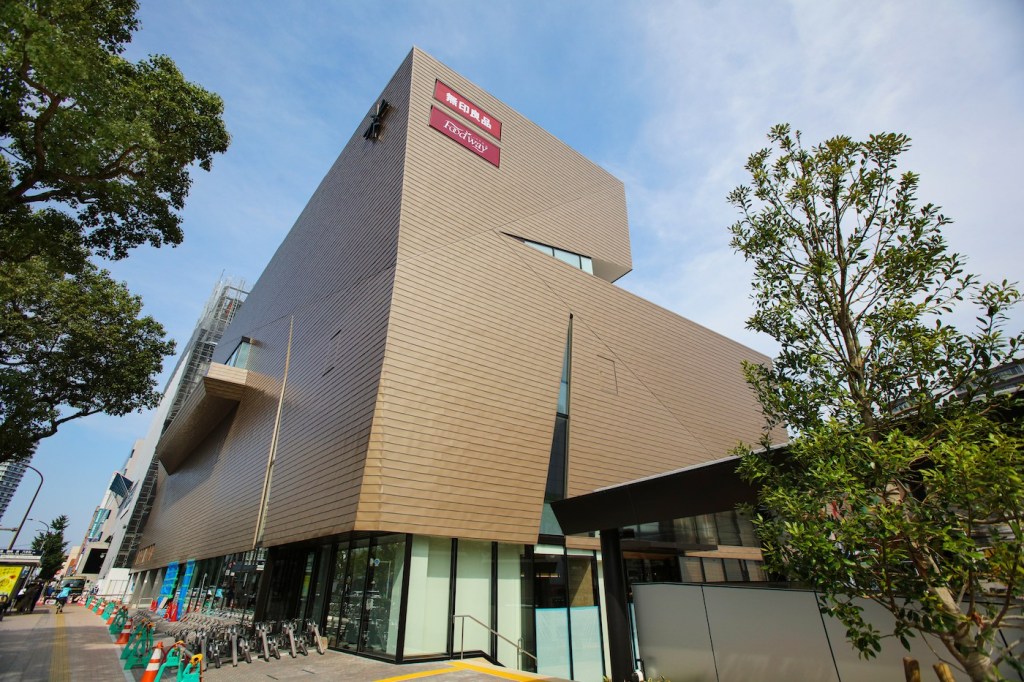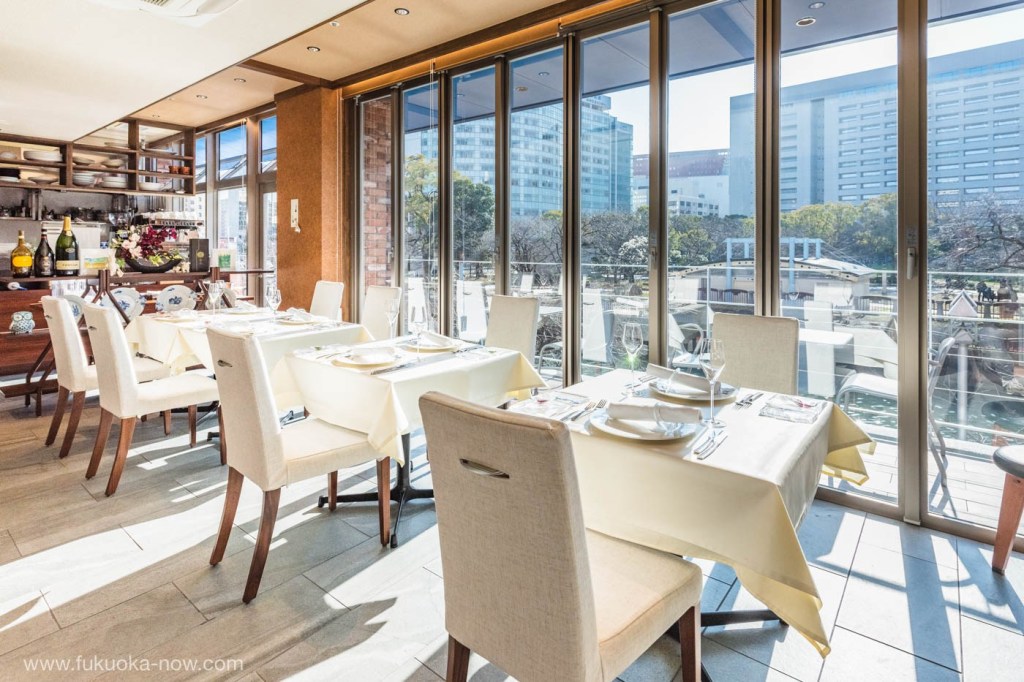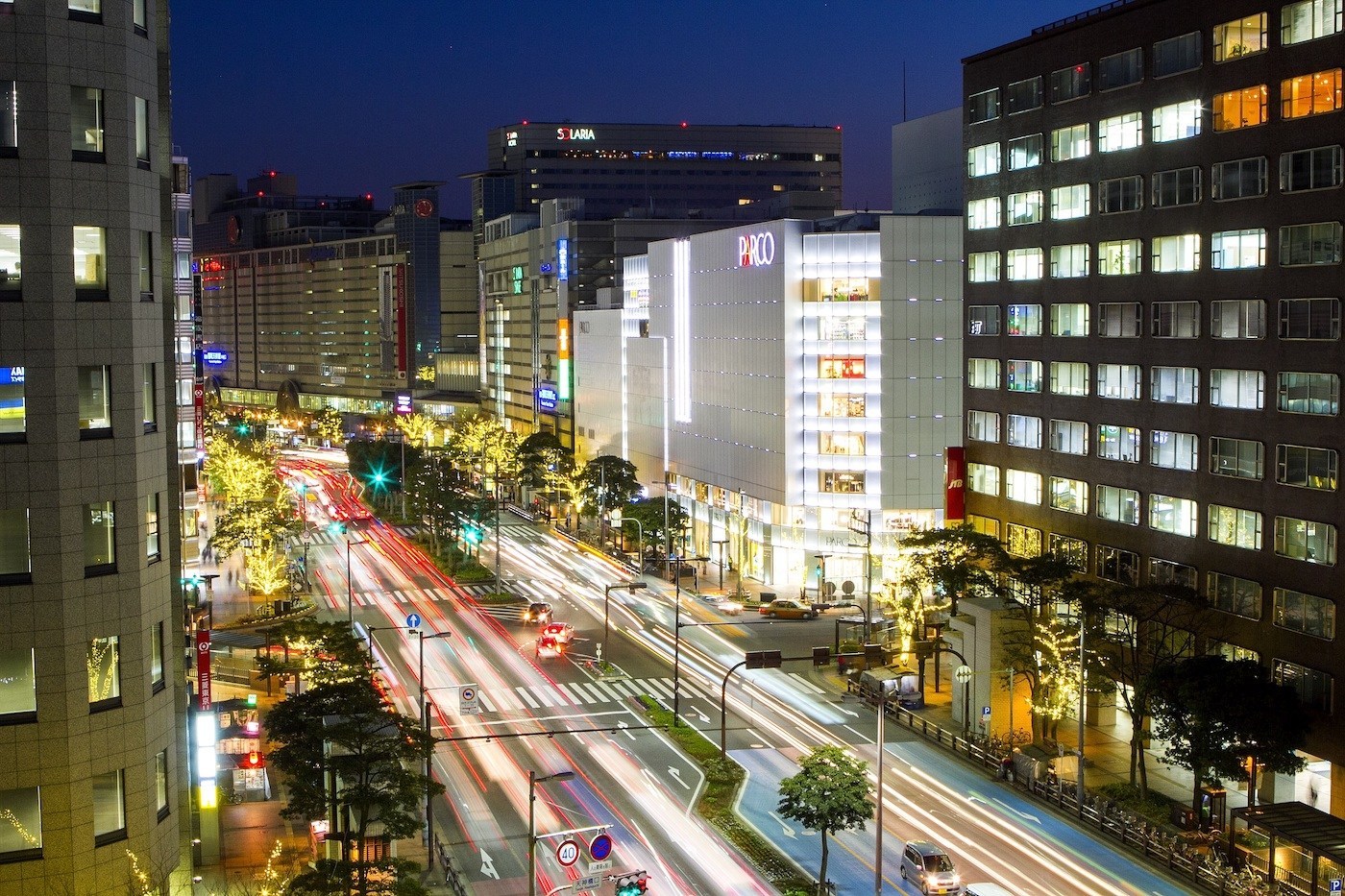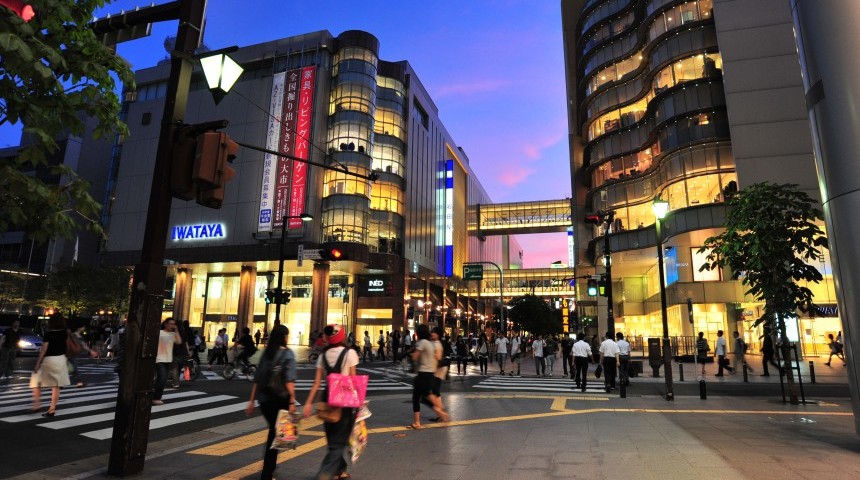
Here’s Why Fukuoka is Called “A Paradise for Core Investors” Posted On 21-08-2020
Fukuoka, JapanFukuoka has been attracting
more attention as a real estate investment market in Japan. It is not only
because of Tenjin Big Bang, a large-scale redevelopment project, but also
because investors from both inside and outside of Japan highly value the steadiness
of the city’s market fundamentals.
A deal
to sell top commercial facilities in Tenjin area was closed
Alarge-scale
deal to sell three commercial facilities owned by DAISHOU Co., Ltd. in
Fukuoka’s booming Tenjin area, the focus of the “Tenjin Big Bang” project, has
been closed. JLL assisted in the sale of the three buildings in Tenjin, Fukuoka
city—Mina Tenjin, North Tenjin, and the E&Y Building—as said company’s
dedicated advisor. They were bought by Fukuoka Standard Oil Co., Ltd., whose
head office is located in Kurume City, Fukuoka Prefecture. The transaction was
completed on June 29, 2018, for a total amount of roughly 26 billion yen.
Although these three commercial facilities are quite old (they opened their
doors around 1970), they have gone through effective renovations, and are
recognized as some of the best community-based commercial facilities in the
Tenjin area.
The
buildings stand on the northeast corner of the Tenjin Hashiguchi intersection
where Watanabe Street and Showa Street cross. This location is the heart of
“Tenjin Big Bang,” a city revitalization project promoted by the city of
Fukuoka, which includes relaxation of regulations regarding buildings’
floor-area ratio and other measures, and it is expected that the buildings will
play a part in further development of the surrounding area. The buyer mentioned
it is also considering revamping the buildings’ the facilities in the future.
If they are rebuilt in the Tenjin Big Bang project, their floor-area ratio can
be increased from the current 1000% to 1200%.
Market
fundamentals are well-reputed
This
deal may seem like it was closed for the purpose of rebuilding the three
buildings as part of the Tenjin Big Bang project, but the boom in Fukuoka’s
transaction market is not expected to be short-lived. “The commercial
facilities whose sale we assisted in can be rebuilt with the current floor-area
ratio and still be profitable enough. The buyer can expect a certain yield even
if they own the properties long-term,” points out Takahiro Ozawa of the JLL
Japan Capital Market Department, who was involved in this project. Tenjin Big
Bang is no more than a secondary advantage, Ozawa says. “Population flows into
Hakata from all over Kyushu, and market fundamentals are stable. Thanks to it,
investors are rushing to Fukuoka from both inside and outside Japan.”
“Fukuoka
is a paradise for core investors,” comments Koji Naito of the JLL Japan Capital
Market Department. Among the cities designated by government ordinance (from
October 2010 to October 2015), the population growth rate of the city of
Fukuoka has increased the fastest, and its population rate of youth in their
teens and twenties is also the largest. In addition, the average propensity to
consume in Fukuoka Prefecture (share of consumption out of disposable income)
is 79.8—the 7th highest in Japan. Its purchasing power is known to be one
of the strongest among greater metropolitan areas, and the number of foreign
visitors to the area is also increasing steadily. As a result of these combined
factors, retail facilities are attracting investment. “For example, there is a
commercial building in a prime location in the Tenjin area owned by a foreign
fund. Typically, properties should be sold after a specified period of
operation, but this fund has expressed no intention of selling this property.
In cases like this, Fukuoka can be an investment market where investors gain
income by holding onto properties long-term,” points out Naito.
On the
other hand, the office space market is booming as much as the retail facility
market. According to a JLL survey, the vacancy rate of class A office spaces
(the top 3% of the stock) in Fukuoka as of the end of the first quarter 2018
was 2.0%. The market rent has increased to 18,001 yen per tsubo.
(A tsubo is a unit of area equivalent to approximately 3.3
square meters.) The supply is barely meeting the demand, and the market is now
a lender’s market, in which rents tend to become higher. In addition, the
success rate of lease agreements being signed for new buildings is at its
highest ever. According to Naito’s independent survey, there are eight new
office buildings being built in Fukuoka City from 2018 to 2021, and all of them
are fully or almost fully occupied. The only building where offices with large
floor space is still available is Tenjin Business Center, which is scheduled to
be completed in 2021 and has not started to look for tenants yet.
We can
also feel momentum in the changes in market rent for new properties. “The
annual average contract rent in Nippon Building Fund Inc.’s Hakata Gion
M-SQUARE (completed in June 2009, 10 stories, floor area of the standard floor
is 542 tsubo) for the years 2011 to 2017 was a scant 1.7%,”
explains Naito. He goes on to describe the strength and appealing points of
Fukuoka’s office market: “While the current rent for said property is estimated
to be about 14,000 yen per tsubo, contract rent for new leases is
over 20,000 yen per tsubo now. Therefore, lenders can expect a
substantial increase in rent if they change tenants. If we compare cap rates in
office buildings in Fukuoka with those of similarly sized B-grade office
buildings in Tokyo during the years 2011 to 2017, the buildings in Fukuoka all
had a cap rate higher than those in Tokyo by about 1%, and were more attractive
investments.”
Tenjin
Big Bang boosts further development
In Fukuoka, few buildings have been rebuilt, due to various restrictions—for example, height restrictions imposed by the Civil Aeronautics Act—and there are not many properties that are still new and good for investment. Nonetheless, it is expected that more and more existing buildings will be revamped thanks to the extra capacity granted under the Tenjin Big Bang project. “Although development projects are driven by local prominent companies and developers in Japan, once the building is complete, condominium units may be put on the market,” comments Ozawa. Fukuoka is already a paradise for core investors, but thanks to Tenjin Big Bang, the city has potential to develop into an international investment market that can meet any demand.

